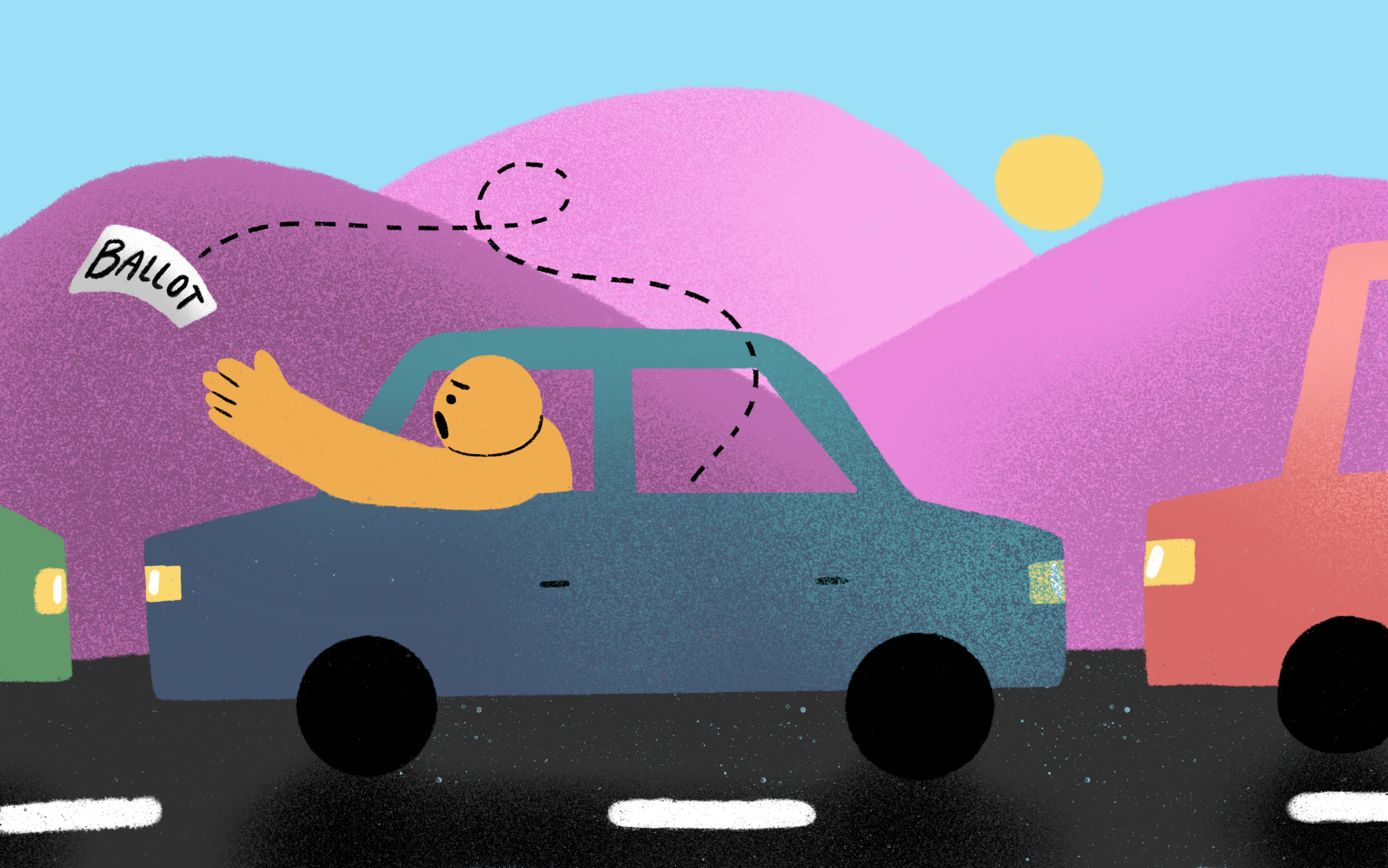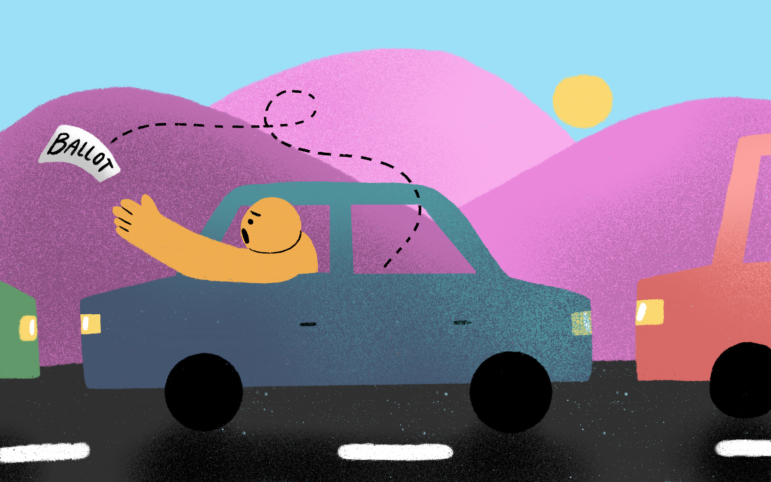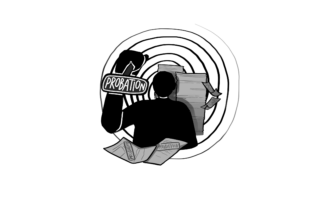
This editorial represents the unanimous opinion of all 14 Outlook editors.
On Nov. 3, U.S. citizens will have a final opportunity to cast their ballots to determine America’s course for the next four years. As the relationship between political parties has grown increasingly tense, citizens are now more eager to engage in democracy.
According to a Pew Research Center survey, 83% of polled registered voters this year agree that the outcome of the presidency is crucial, up 9% from 2016. However, the amount of people invested in politics does not align with voter turnout, which has always been low in America. According to a study by the University of California of Santa Barbara, an average of 55.36% of eligible voters participated in the presidential election process in the past 20 years. The date marked as Election Day, which is always the first Tuesday of November, could discourage many from casting their ballots.
“14% of registered American voters did not vote in the 2016 presidential election because they were too busy or had scheduling conflicts”
To address low voter turnout, the editors of the Outlook believe that Election Day should become a national holiday. Eliminating the interference of work and school would create more opportunities for people to vote on Election Day. This phenomenon can be seen in France, as its general election day is held on a Sunday. According to a study by the Sigma Journal of Political and International Studies, between 2002 to 2012 an average of 81% of registered voters in France voted, while only an average of 75% of registered voters used their power at the ballot box in the U.S. during the same time period.
A Pew Research Center survey revealed that 14% of registered American voters did not vote in the 2016 presidential election because they were too busy or had scheduling conflicts. For most people who work from 9 a.m. to 5 p.m., there is barely enough time to stand in line to cast their vote and then travel back to work as polling booths in California are open from 7 a.m. to 8 p.m. For some rural Americans, the nearest polling place is more than an hour drive away. States, such as Texas, have closed as much as one in 10 polling locations, and seven counties in Georgia now only have one polling place, adding to the inconvenience. If work institutions, including sports arenas, stadiums and schools were to close on Election Day, these buildings could transform into voting centers, making voting more accessible. Many NBA arenas and facilities, for example, will be used as polling centers for the 2020 election.

Long lines that occur early in the morning before work and late in the evening after work can be eliminated, as people would no longer be limited by their work schedule. Bipartisan Policy Center reported that at times, casting a vote can exceed 30 minutes. For the upcoming election, wait times have further increased as many polling centers have closed due to COVID-19 restrictions. Because of the added precautions, some citizens must wait hours to cast their vote. Voters in Texas have experienced wait times over five hours. Having a work-free day would allow voters to choose the time of the day that is best for them to cast their ballot, preventing long lines at specific times of day and thus limiting voters’ time spent at the polls.
Making Election Day a national holiday would also raise awareness of this important date, encouraging people to pre-register to vote and consider who they will cast their vote for. It is an opportunity for the community to gather and celebrate democracy together, creating a patriotic atmosphere among citizens. Thus, many would be encouraged to participate in Election Day, increasing voter turnout.
Democracy is a foundation of the U.S. and equality is a major pillar of democracy. Making Election Day a national holiday would promote equality in the voting system, creating a future where all citizens can use their voices to effect positive change.



